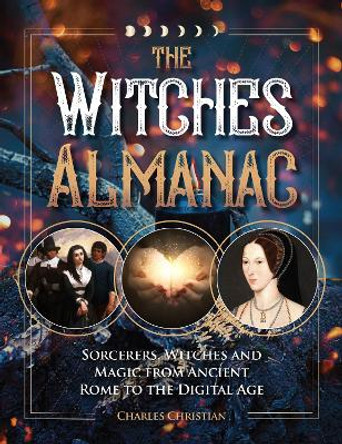Description
Stratton argues that the concept "magic" first emerged as a discourse in ancient Athens where it operated part and parcel of the struggle to define Greek identity in opposition to the uncivilized "barbarian" following the Persian Wars. The idea of magic then spread throughout the Hellenized world and Rome, reflecting and adapting to political forces, values, and social concerns in each society. Stratton considers the portrayal of witches and magicians in the literature of four related periods and cultures: classical Athens, early imperial Rome, pre-Constantine Christianity, and rabbinic Judaism. She compares patterns in their representations of magic and analyzes the relationship between these stereotypes and the social factors that shaped them.
Stratton's comparative approach illuminates the degree to which magic was (and still is) a cultural construct that depended upon and reflected particular social contexts. Unlike most previous studies of magic, which treated the classical world separately from antique Judaism, Naming the Witch highlights the degree to which these ancient cultures shared ideas about power and legitimate authority, even while constructing and deploying those ideas in different ways. The book also interrogates the common association of women with magic, denaturalizing the gendered stereotype in the process. Drawing on Michel Foucault's notion of discourse as well as the work of other contemporary theorists, such as Homi K. Bhabha and Bruce Lincoln, Stratton's bewitching study presents a more nuanced, ideologically sensitive approach to understanding the witch in Western history.
About the Author
Kimberly B. Stratton is an associate professor in the College of Humanities at Carleton University. She is coeditor of Daughters of Hecate: Women and Magic in Antiquity (2014) and Crossing Boundaries in Ancient Judaism and Early Christianity: Ambiguities, Complexities, and Half-Forgotten Adversaries (2016).
Reviews
A scrupulous and highly innovative study of the phenomenon of "magic" in the ancient world... A significant contribution to the discussion... Recommendable to all readers. -- Thomas J. Kraus * Review of Biblical Literature *
Wide-ranging and engaging. . . . This book furthers our understanding of the discourse of magic in antiquity. * Journal for the Study of Judaism in the Persian, Hellenistic, and Roman Period *
Stratton's analysis thus sheds light not only upon the ancient world but also upon a present in which the discourse of magic retains its currency in popular culture and religious rhetoric. . . . A most enlightening volume which will no doubt stimulate scholarly and popular conversation for many years to come. * Studies in Religion/Sciences Religieuses *
Naming the Witch is a well argued, well constructed book that can be highly recommended. -- Patrick Maille * Bryn Mawr Classical Review *
This is one of the most stimulating and intelligent of many studies of ancient magic in recent scholarship... -- Ian H. Henderson * Toronto Journal of Theology *
Awards
Winner of Best First Book in the History of Religions, American Academy of Religion 2008 and Frank W. Beare Award 2008.
Book Information
ISBN 9780231138376
Author Kimberly B. Stratton
Format Paperback
Page Count 312
Imprint Columbia University Press
Publisher Columbia University Press







